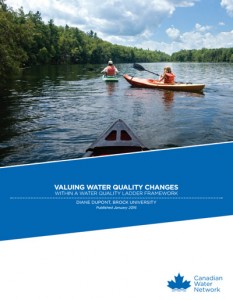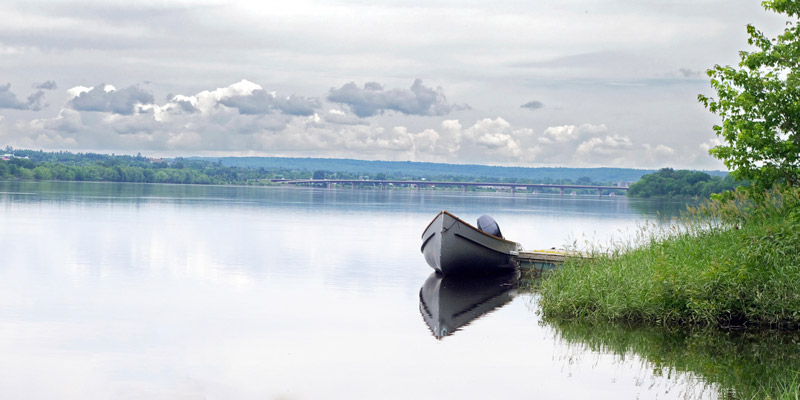Valuing Water Quality Changes Within a Water Quality Ladder Framework
Principal Investigator - Diane Dupont, Professor, Brock University, 2013 - 2014

Challenge
Given the potential adverse impacts of climate change upon water supplies, Canada must ensure its scarce water supplies are used in efficient and sustainable ways. In the past, this effort has been hampered by an absence of economic data on water use and valuation.
The proposed study builds upon the following initial project:
- Project (2008-2012): More Value from the Same Water: Maximizing Water’s Sustainable Contribution to the Canadian Economy – Diane Dupont, Brock University
This research developed economic models of household/firm decision-making with respect to water, which provided outputs that create a better understanding of the economic forces shaping direct water use (water used directly by consumers or by businesses).
The study provided the first comprehensive assessment in 25 years on the value of Canada’s water, and through this process revealed a gap in what is known regarding the value of indirect services from water that are enjoyed by Canadians, which is the focus of the current project. A number of ways to improve the direct contribution of municipally-supplied water to household well-being/firm profits were identified. However, these “direct use benefits” do not take into consideration indirect or non-use benefits (benefits from recreation, tourism, and other activities including the environment), which some research has suggested provide more value to the Canadian economy than do market benefits. The researchers intend to extend value estimates by incorporating indirect benefits from water’s use. These estimated values will then be linked to measurable changes in water quality, which will provide policy makers with the necessary information and tools for decision-making.
Project
Starting with an established Water Quality Ladder, adapted for Canada’s water situation, the research team will relate changes in the five most prevalent regional water pollutants to five measures of the quality of water services – drinkable without treatment, swimmable, good for game fishing, good for rough fishing and good for boating. Then making use of Canadian data and parameters, monetary values will be developed for the resulting environmental impacts via benefit transfer techniques, a method that estimates economic values for ecosystem services by transferring available information from studies completed in different locations/contexts. These values can then be used as a starting point for identifying values associated with consumers’ “willingness-to-pay” for changes in water quality.
The team will access water quality, land use and climate data from a number of community water systems in British Columbia, Alberta, Québec and Newfoundland. Land-use data and climate data will also be compiled for each of the watersheds, along with any concerns expressed by communities regarding water quality. In order to facilitate site comparisons, a literature review will establish a core set of source water parameters, to which site-specific parameters of concern can be added.
Outputs
Anticipated outputs include:
- Development of the quality component of Environment Canada’s Integrated Water Quality and Quantity Valuation Model. This computer simulation tool will be used to value the impacts of contaminants on water quality in Canada.
- Training of Environment Canada staff on two approaches for undertaking benefit transfer exercises that link water quality changes with Willingness to Pay values.
Outcomes
Anticipated outcomes include:
- Increasing knowledge related to the link between surface water quality improvements/degradation and changes in Canadians’ willingness to pay for better water quality.
- Inform decision-making for policy-makers by using the findings in cost-benefit analyses.
- Increase in knowledge on the contribution of water to the Canadian economy.





